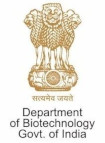Dr Ganesh Bagler: Computational Gastronomy

Cooking forms the core of our cultural identity other than being the basis of nutrition and health. Starting with a seemingly simple question, ‘Why do we eat what we eat?’, data-driven research conducted in our lab have led to interesting explorations of patterns in traditional recipes, their flavor composition, and health associations. Our investigations have revealed ‘culinary fingerprints’ of regional cuisines across the world, starting with the case study of Indian cuisine. Increasing availability of culinary data and the advent of computational methods for their scrutiny is dramatically changing the artistic outlook towards gastronomy. Application of data-driven strategies for investigating the gastronomic data (such as traditional recipes, molecular constituents of ingredients, percepts of flavor compounds, and health associations of food) has opened up exciting avenues giving rise to an all-new field of ‘Computational Gastronomy’. This emerging interdisciplinary science asks questions of culinary origin to seek their answers via compilation of culinary data and their analysis using methods of statistics, machine learning, natural language processing, pattern mining, and chemo-informatics. Along with complementary experimental studies, it has the potential to transform the food landscape by effectively leveraging data-driven food innovations for better health and nutrition.
This talk will provide an overview of computational gastronomy research from our lab (Complex Systems Laboratory, IIIT-Delhi) involving food pairing, the molecular basis of taste, health impacts of food, novel-recipe-generation algorithms, and models of culinary evolution.

